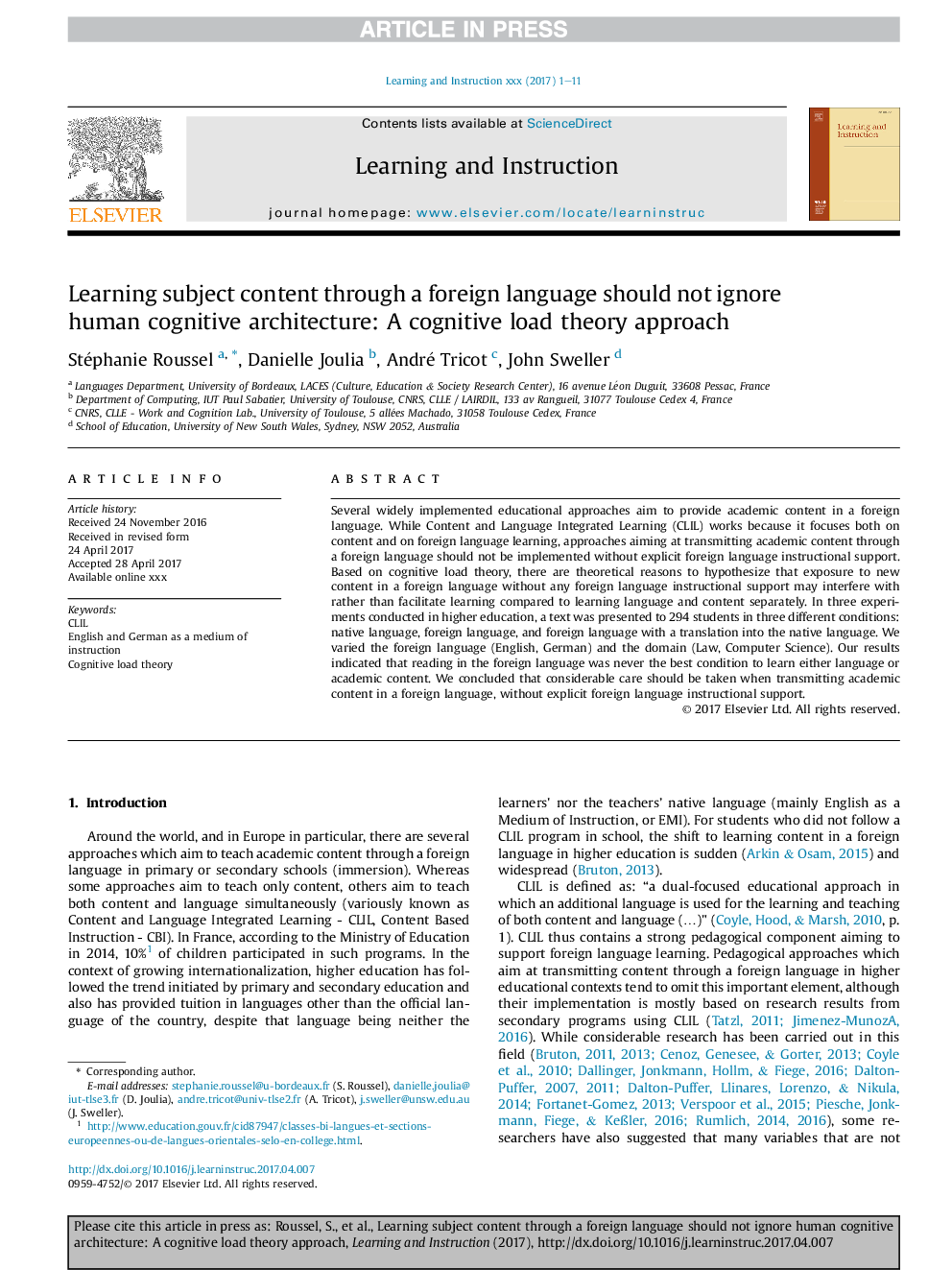| Article ID | Journal | Published Year | Pages | File Type |
|---|---|---|---|---|
| 4940202 | Learning and Instruction | 2017 | 11 Pages |
Abstract
Several widely implemented educational approaches aim to provide academic content in a foreign language. While Content and Language Integrated Learning (CLIL) works because it focuses both on content and on foreign language learning, approaches aiming at transmitting academic content through a foreign language should not be implemented without explicit foreign language instructional support. Based on cognitive load theory, there are theoretical reasons to hypothesize that exposure to new content in a foreign language without any foreign language instructional support may interfere with rather than facilitate learning compared to learning language and content separately. In three experiments conducted in higher education, a text was presented to 294 students in three different conditions: native language, foreign language, and foreign language with a translation into the native language. We varied the foreign language (English, German) and the domain (Law, Computer Science). Our results indicated that reading in the foreign language was never the best condition to learn either language or academic content. We concluded that considerable care should be taken when transmitting academic content in a foreign language, without explicit foreign language instructional support.
Keywords
Related Topics
Social Sciences and Humanities
Psychology
Developmental and Educational Psychology
Authors
Stéphanie Roussel, Danielle Joulia, André Tricot, John Sweller,
